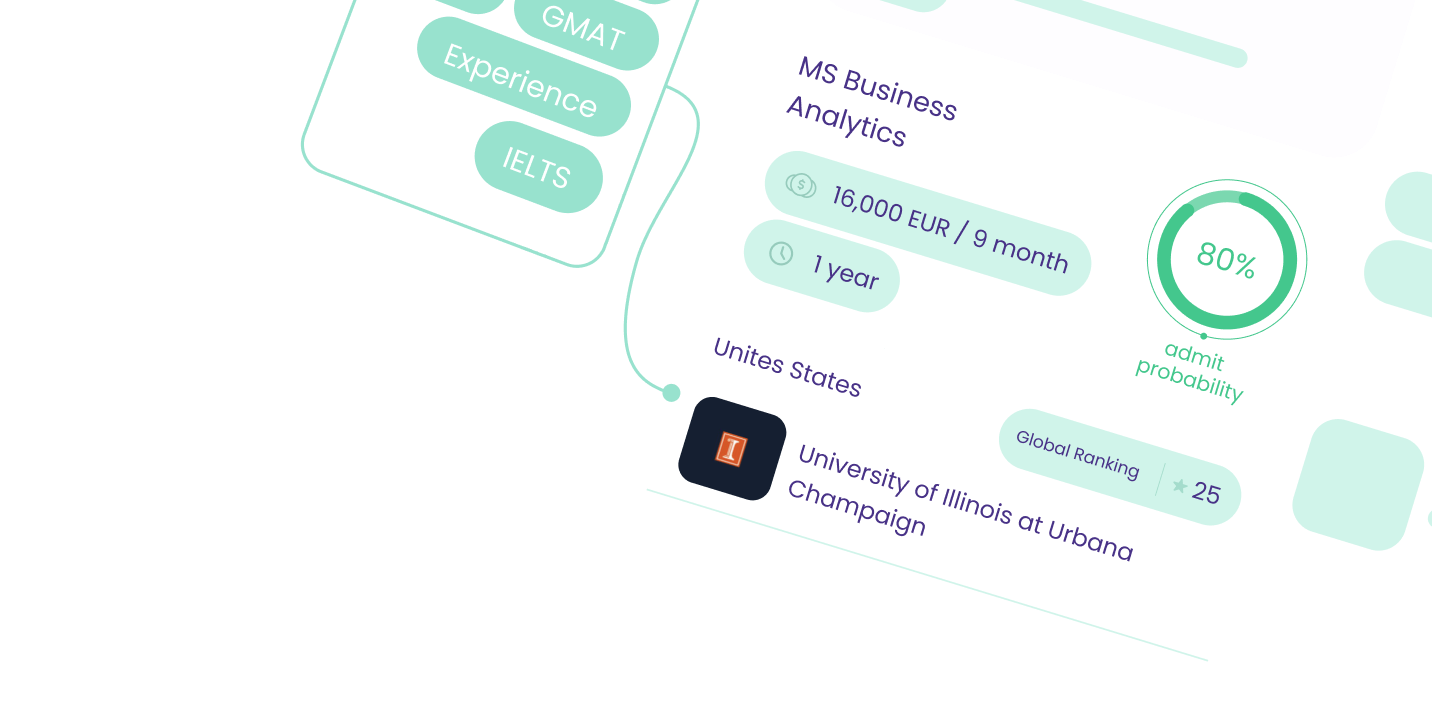Living in Ireland as a student is an incredible experience you’ll cherish forever. It’s little wonder that Ireland has become such a well-liked study destination for international students with its rich history, lively culture, and world-class educational institutions.
Ireland’s unique charm is one of the features that sets it apart and draws students from all over the world. Reputable Irish colleges and universities provide top-notch education and a broad selection of programmes in a variety of topics.
You may find top-notch educational programmes to match your interests and objectives whether you want to pursue a career in the arts, sciences, business, or any other profession. Irish educational institutions have a well-regarded academic reputation, so you can be sure you’ll get a top-notch education that will set you up for success.
We’re here to help you with every element of being a student in Ireland through our blog. We’ll go through everything, from how to get there to figuring out the educational system and maximising your time as a student.
Choosing Ireland as a Study Destination

It’s easy to understand why Ireland has become a more sought-after study destination among international students. Let’s explore the elements that set Ireland apart as a top destination for study abroad.
1. Education Quality
Ireland is known for providing excellent education, and rightly so. Its institutions and universities routinely rank among the top in the world. You can count on receiving a top-notch education in Ireland when you decide to pursue a degree there, one that will provide you with the information and abilities you need to succeed in your chosen field of employment. Irish educational institutions lay a reasonable basis for your future success by significantly focusing on academic excellence, research, and innovation.
2. Vibrant Culture
Irish culture is incredibly alive and energetic and is rich in history, music, literature, and the arts, making it genuinely distinct. As a student in Ireland, you’ll have the fantastic chance to fully immerse in this vibrant culture and encounter the warm friendliness and compassion of the locals. There’s never a dull moment in Ireland, from warm pub gatherings with traditional music sessions to exciting festivals honouring Irish culture.
3. Welcoming Environment
Ireland is renowned for its hospitable and inclusive atmosphere. Irish people are kind and welcoming, making it simple for international students to settle here and feel at home. The nation is strongly committed to diversity, promoting an atmosphere where students from all origins are welcomed and cherished.
4. Renowned Universities
There are a number of internationally famous colleges and universities in Ireland. Long known for their academic prowess, institutions like Trinity College Dublin, University College Dublin, and University College Cork provide a wide variety of programmes in a number of different fields.
5. Academic Opportunities
Students have access to a wide variety of academic possibilities in Irish universities. You’ll discover programmes catered to your interests, whether in business, science, engineering, or technology.
6. English-Speaking Environment
Studying in Ireland provides an intensive English-speaking environment for international students whose first language is English or who seek to enhance their English language abilities. Daily interaction with English-speaking people improves language proficiency and makes communicating effectively in social and academic contexts easier.


Preparing for Your Arrival

There are several crucial factors to consider before arriving in Ireland as an international student. Here are some of them:
1. Visa Requirements and Application Process
- Visit the Irish Naturalisation and Immigration Service’s (INIS) website to find the precise visa requirements for your home country.
- To give enough time for processing, apply for the required visa far in advance.
- In most cases, in order to enrol in full-time studies, students from non-European Economic Area (EEA) nations must apply for a study visa or a visa that falls under the “Stamp 2” category.
- The necessary paperwork must be ready, including a letter of acceptance from the Irish institution of your choice, evidence of financial stability, proof of health insurance, and a passport that is still valid.
- Apply for a visa online or at the Irish embassy or consulate in your native country that is most convenient for you.
2. Finding Suitable Accommodation
- Look at lodging choices close to your institution or university. Students, residence halls, privately rented housing, and home-stays are popular choices.
- For information on available housing alternatives and assistance locating appropriate lodging, contact your institution’s international office or student support services.
- Investigate online resources and websites for student housing with listings and details on available rents.
- When selecting a place to stay, consider variables like location, closeness to your college, amenities, and affordability.
- In order to obtain your favourite alternative, start your search early because accommodation might be in great demand, particularly in well-liked student towns like Dublin.
3. Setting up a Bank Account and Managing Finances
- Registering a bank account as soon as you arrive in Ireland is advised to manage your money and expedite transactions.
- Examine several banks and contrast their offerings, costs, and accessibility.
- Bring the required paperwork to the bank branch, including your passport, proof of address, and a letter of acceptance from your institution.
- Once your bank account is established, you may quickly deposit money, get transfers, and handle your bills.
- Learn the Euro, the local currency, and consider adopting online banking services for convenience and money management.
Adjusting to Life in Ireland

A move to a new nation may be both exhilarating and challenging. Look at the difficulties you could experience:
1. Cultural Aspects and Customs
- Irish people are renowned for being hospitable and kind. You may embrace Irish culture by conversing, participating in social events, and honouring regional traditions.
- Irish people have a strong feeling of community and frequently congregate in neighbourhood bars where traditional music performances are frequent. Feel free to participate and take in the exciting environment.
- In Irish culture, courtesy and good manners are highly valued. When engaging with people, remember to say “please” and “thank you” and use the proper pleasantries.
- Irish cuisine includes traditional Irish breakfasts, hearty stews, and soda bread. To immerse yourself in the cuisine, peruse the neighbourhood food markets and sample some traditional Irish fare.
2. Navigating Transportation Systems
- Ireland has an efficient transport system that makes getting around the nation simple. Buses, trains, trams, and taxis are all forms of public transit.
- Transport between cities and towns is dependable and reasonably priced because of the Bus Éireann and Irish Rail networks.
- Major cities with extensive public bus services and light rail networks, including Dublin, Cork, and Galway, have the Dublin Area Rapid Transit (DART) and Luas, which provide easy methods to move about the city.
- Think about getting a Leap Card, a prepaid smart card with reduced transit costs.
- Ireland is a country where many cities offer bike-sharing programmes and designated lanes for cyclists.
3. Accessing Healthcare Services and Health Insurance
- Residents of Ireland have the right to public healthcare services provided by the Health Service Executive (HSE). International students must comprehend the healthcare system and have access to the required healthcare services.
- It is essential to get health insurance to cover any medical costs that the public healthcare system might not cover. Many colleges mandate health insurance as a requirement for enrollment for overseas students.
- For information on health insurance plans designed specifically for overseas students, see the international office at your university.
- Call emergency services at 999 or 112 in case of medical emergencies.
- Register with a nearby GP (General Practitioner) for regular medical requirements. The student assistance services at your college can help you locate a nearby general practitioner.
Cost of Living and Budgeting

Careful budgeting is necessary for a student’s lifestyle in Ireland. These ideas will assist you:
1. Breakdown of Common Expenses
- Accommodations: Rental prices vary depending on the area and kind of lodging. Consider possibilities like shared flats, individual rentals, or student dorms.
- Food: Set aside money for both groceries and eating out. Although eating at home is typically less expensive, treating yourself to a dinner out now and again may be enjoyable.
- Transportation: Depending on your location and travel requirements, the price of public transportation varies. For savings, think about utilising prepaid transit passes or student ID cards.
- Utilities: Set aside money for the costs of heating, internet, water, and electricity. The rental cost of certain hotels may include utilities.
- Health Insurance: You should consider the cost of health insurance for international students.
- Miscellaneous Expenses: Include costs for books, materials for the classroom, personal care products, and extracurricular activities.
2. Tips for Budgeting Effectively
- By keeping track of your income and spending, create a monthly budget. To keep track of your expenses, use spreadsheets or budgeting software.
- Put the most essential costs first, and set aside some of your money for savings.
- To save money on food, prepare meals at home and pack lunches.
- Use the student discounts at eateries, stores, transit companies, and cultural events.
- Make smart financial decisions and cut back on excessive spending.
- Consider dividing the cost of electricity, food, and home essentials with your flatmate.


Student Life and Social Activities

Ireland provides students with a vibrant and active life outside the classroom. Here are a few examples:
1. Clubs, Societies, and Events:
Several clubs and organisations in Irish universities and colleges cater to various interests, including sports, the arts, culture, hobbies, and academic endeavours. You may follow your hobbies, connect with like-minded people, and partake in social and leisure activities by joining clubs and organisations.
Regular events at universities include musical performances, theatrical productions, comedic acts, and cultural festivals. These gatherings offer chances to mingle with locals, experience their culture firsthand, and make lasting memories.
2. Popular Student Destinations and Cultural Attractions
The capital city of Dublin has a thriving student community with many bars, cafés, live music venues, and cultural attractions. Visit the Guinness Storehouse, stroll around the ancient Trinity College campus, or explore the bustling Temple Bar streets.
Galway, well-known for its arts and music scene, has a vibrant student population and a bohemian vibe. Walk around the lovely streets, take in the lively Galway International Arts Festival, and live music in the bars.
Another energetic city, Cork, is home to several historic structures, galleries, and bustling markets, contributing to its rich cultural legacy. Don’t forget to see the Crawford Art Gallery, the English Market, and the lovely St. Finbarr’s Cathedral.
3. Recreational Activities
Ireland’s stunning scenery offers a variety of outdoor activities. Discover the breathtaking Cliffs of Moher, go hiking in the breathtaking Wicklow Mountains, or travel the Wild Atlantic Way.
The coastlines of Ireland provide chances for water sports, including sailing, surfing, and kayaking. Sports fans can play Gaelic games like hurling and Gaelic football or sign up for neighbourhood football, rugby, or other sports teams.
Public parks, gardens, and green areas offer tranquil locations for leisure activities like picnics and friend gatherings.
4. Networking and Building Connections
It’s a great opportunity to meet new people, establish friends, and connect with other students with similar interests to join clubs, groups, and student organisations. Attend student gatherings, workshops, and seminars to meet professionals, business leaders, and alumni who may provide insightful commentary and career guidance.
Expand your professional network by taking advantage of your university’s mentoring programmes, career fairs, and internship possibilities.


Tips for maintaining Health and Well-being Support

Looking after your physical and emotional health is essential to have a successful and satisfying student life in Ireland. Here are a few of the tips:
- Taking care of mental and physical health is crucial for fulfilling student life.
- Access support services on campus and in the local community.
- Prioritise mental well-being and practice self-care strategies.
- Utilise counselling services, student health clinics, and peer support networks.
- Manage stress through effective time management, healthy eating, and regular exercise.
- Engage in relaxation techniques for stress reduction.
- Foster social connections and seek help when needed.
- Your well-being is essential for academic success and overall enjoyment.
- Prioritise self-care and utilise available resources for a healthy and balanced lifestyle.
Travelling and Exploring Ireland

Popular Tourist Destinations and Hidden Gems:
- Dublin: Trinity College, Dublin Castle, Temple Bar, Ha’penny Bridge.
- Cliffs of Moher: Breathtaking coastal cliffs with stunning views.
- Ring of Kerry: Scenic drive with landscapes, cliffs, villages, and ruins.
- Galway: Bohemian city with an arts scene and vibrant street performances.
- Giant’s Causeway: UNESCO World Heritage Site with unique rock formations.
- Public Transportation Options for Exploring the Country: Buses and trains connect major cities and towns.
- Car Rental: Flexibility to venture off the beaten path.
- Cycling: Scenic routes like the Wild Atlantic Way and Great Western Greenway.
- Aran Islands: Traditional culture, ancient ruins, and coastal landscapes.
- Killarney National Park: Lakes, walking trails, and historic Muckross House.
- Boyne Valley: Historical sites like Newgrange and Hill of Tara.
- Wild Atlantic Way: Coastal drive with charming towns, cliffs, and beaches.
Working Opportunities for International Students

International students can work part-time while studying in Ireland.
- Guidelines include a maximum of 20 hours per week during the academic term.
- Full-time work is allowed during scheduled breaks, such as summer holidays.
- European Economic Area (EEA) and Swiss nationals have the same employment rights as Irish students.
- Non-EEA students may need specific work permits, such as Stamp 2 or Stamp 2A permissions.
- Utilise university career services for job listings and internship programs.
- Online job portals like Jobs. i.e., Indeed, LinkedIn, and IrishJobs. i.e., offer job opportunities.
- Attend career fairs, networking events, and connect with professionals in your field.
- Check with your university’s student union for on-campus job postings.
- Approach local businesses to inquire about part-time job vacancies.
- Prioritise academic commitments and maintain a healthy work-study-life balance.
- Stay updated on visa and work permit regulations through the Irish Naturalisation and Immigration Service (INIS).
- Working part-time offers practical skills, financial support, and networking opportunities for international students in Ireland.
Embracing the Student Life in Ireland!

The experience of studying and living in Ireland is distinctive and rewarding. Ireland has much to offer, including a top-notch educational system, a thriving culture, beautiful scenery, and welcoming inhabitants. Take advantage of the chance to get to know Irish culture, see the nation’s wonders, and interact with the active student community. Set your health and well-being as a top priority, take advantage of the support systems available, and engage in social and cultural activities.
Make the most of your time, make smart financial decisions, and look for employment possibilities and internships. Make lasting memories in Ireland by embracing the trip, being open to novel experiences, and embracing the adventure.
Talk to the experts that you can get you a hassle free admission into Irish Colleges!


Frequently Asked Questions
Q. Can international students engage in part-time employment in Ireland?
During the academic year, overseas students may work up to 20 hours per week, and during breaks, they may work full-time.
Q. How can I locate housing close to my university?
Look into university housing alternatives, rental properties, or contact the housing office at your institution for assistance.
Q. Can I visit Ireland while I’m studying there?
Yes, you should go about the nation via public transit, a rental car, or a guided tour.
Q. Are there internship possibilities in Ireland for international students?
Yes, internships are available via colleges and businesses to help you develop your talents and obtain real-world experience in your industry.



Comments (0)